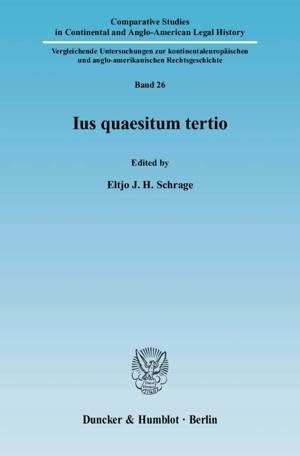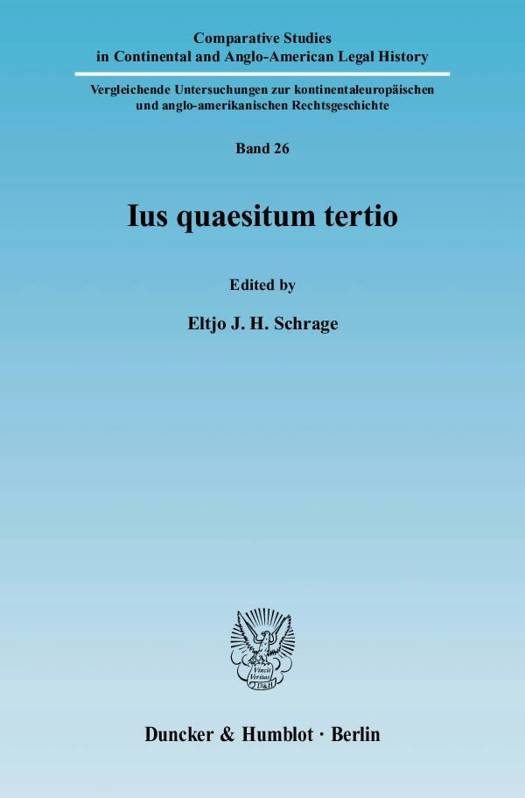
Bedankt voor het vertrouwen het afgelopen jaar! Om jou te bedanken bieden we GRATIS verzending (in België) aan op alles gedurende de hele maand januari.
- Afhalen na 1 uur in een winkel met voorraad
- In januari gratis thuislevering in België
- Ruim aanbod met 7 miljoen producten
Bedankt voor het vertrouwen het afgelopen jaar! Om jou te bedanken bieden we GRATIS verzending (in België) aan op alles gedurende de hele maand januari.
- Afhalen na 1 uur in een winkel met voorraad
- In januari gratis thuislevering in België
- Ruim aanbod met 7 miljoen producten
Zoeken
Ius Quaesitum Tertio
Paperback | Engels | Comparative Studies in Continental and Anglo-American Legal History | Comparative Studies in Continental and Anglo-Ameri | nr. 26
€ 245,95
+ 491 punten
Omschrijving
This volume is the third one in a series of publications composed by (more or less) the same academic working group. It follows the publications "Unjust Enrichment: The Comparative Legal History of the Law of Restitution" (1995, 2nd edition 1999 <978-3-428-07982-7>) and "Negligence: The Comparative Legal History of the Law of Torts" (2001 <978-3-428-10516-8).
The authors of this volume focus on contracts in favour of third parties. They examine two distinct, but closely related topics: The unfolding and gradual withering away of the Roman law maxim Alteri stipulari non potest and (more general) the creation of contractual rights in favour of third parties. This too has its roots in Roman law, yet it developed a life of its own, remaining a highly controversial subject in modern European legal systems. Behind these themes arises the question of whether or not there is any rule restricting contracts to reciprocal relationship.
The authors of this volume focus on contracts in favour of third parties. They examine two distinct, but closely related topics: The unfolding and gradual withering away of the Roman law maxim Alteri stipulari non potest and (more general) the creation of contractual rights in favour of third parties. This too has its roots in Roman law, yet it developed a life of its own, remaining a highly controversial subject in modern European legal systems. Behind these themes arises the question of whether or not there is any rule restricting contracts to reciprocal relationship.
Specificaties
Betrokkenen
- Uitgeverij:
Inhoud
- Aantal bladzijden:
- 439
- Taal:
- Engels
- Reeks:
- Reeksnummer:
- nr. 26
Eigenschappen
- Productcode (EAN):
- 9783428127207
- Verschijningsdatum:
- 28/01/2008
- Uitvoering:
- Paperback
- Formaat:
- Trade paperback (VS)
- Afmetingen:
- 155 mm x 231 mm
- Gewicht:
- 5756 g

Alleen bij Standaard Boekhandel
+ 491 punten op je klantenkaart van Standaard Boekhandel
Beoordelingen
We publiceren alleen reviews die voldoen aan de voorwaarden voor reviews. Bekijk onze voorwaarden voor reviews.








